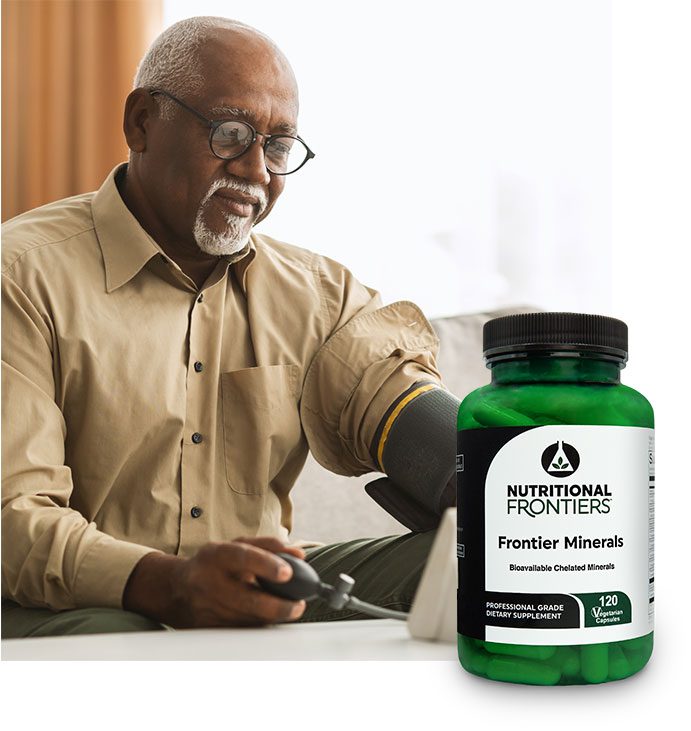Sections
- Antibiotics
- Artificial Sweeteners
- Aspirin & Stroke
- Blood Pressure Medications & Mineral Depletion
- Calcium
- Coenzyme Q10
- Diet & Lifestyle
- Food Allergies
- Nutritional Frontiers Purity & Potency
- Possible Imbalances From Medications
- Quality & Patented Research
- Quality, Purity, & Potency
- Targeted Nutrition
- The Benefits of Multivitamin Use Substantiated
- The Dangers of Over-The-Counter Pain Medications
- The Ins & Outs of Whey Protein
- Vitamin D Deficiency
- What’s In Your Multivitamin?
- Why Choose Nutritional Frontiers Vegetable Protein Over Competing Brands
Pharmaceutical Treatment of Hypertension
Blood pressure medications, also called anti-hypertensive medications, are prescribed by some doctors to lower blood pressure in people whose blood pressure is elevated, a condition called hypertension. Antihypertensives work in several different ways.
- Diuretics work to increase urination and flush excess water by acting on the kidneys. Thiazide diuretics include chlorothiazide and hydrochlorothiazide. Potassium-sparing diuretics include spironolactone (Aldactone), eplerenone (Inspra), and triamterine (Dyrenium).
- ACE inhibitors prevent a hormone called Angiotensin I from performing its normal job which is to constrict blood vessels. This allows for more relaxed vessels and a decrease in blood pressure. Examples include captopril (Capoten), lisinopril (Prinivil, Zestril) and ramipril (Altace).
- ARB’s or angiotensin antagonist medications, also target Angiotensin 11. Examples include losartan (Cozaar), olmesartan (Benicar) and valsartan (Diovan).
- Beta Blockers cause the heart to work less hard, reduce heart rate, and reduce heart contractility, thereby reducing blood pressure. Examples include metoprolol (Lopressor, Toprol XL), carvedilol (Coreg), atenolol (Tenormin), propanolol (Inderal), etc.
- Calcium Channel Blockers relax blood vessels and reduce blood pressure by preventing calcium from entering some cells in the heart and vessels. Examples include amlodipine (Norvasc), diltiazem (Cardizem, Dilacor XR) and nifedipine (Adalat, Procardia).
- Renin inhibitors interfere with production of rennin, which is a substance produced by the kidneys that sets off a cascade of steps to increase blood pressure.
Nutrition Depletion
Blood pressure medications can cause depletion of important minerals in the body. The different classes of antihypertensive medications cause different nutrient depletions depending on their mechanism of action. Loop diuretics like furosemide (Lasix) and other potassium-wasting diuretics like bumetanide (Bumex) may deplete calcium, magnesium, phosphorus, potassium, and vitamins B1, B6, and C.ACE inhibitors may deplete zinc. Angiotensin II Receptor Antagonists may deplete calcium, magnesium, zinc, phosphorus, and CoQ10. Thiazide diuretics may deplete some potassium, zinc, and magnesium. Please note: potassium-sparing diuretics (amiloride, triamterine, spironolactone, eplerenone) can case an excess of potassium, leading to toxicity.
Frontier Minerals by Nutritional Frontiers provides a balanced multi-mineral formula that contains 9 key minerals in easily assimilated forms.



